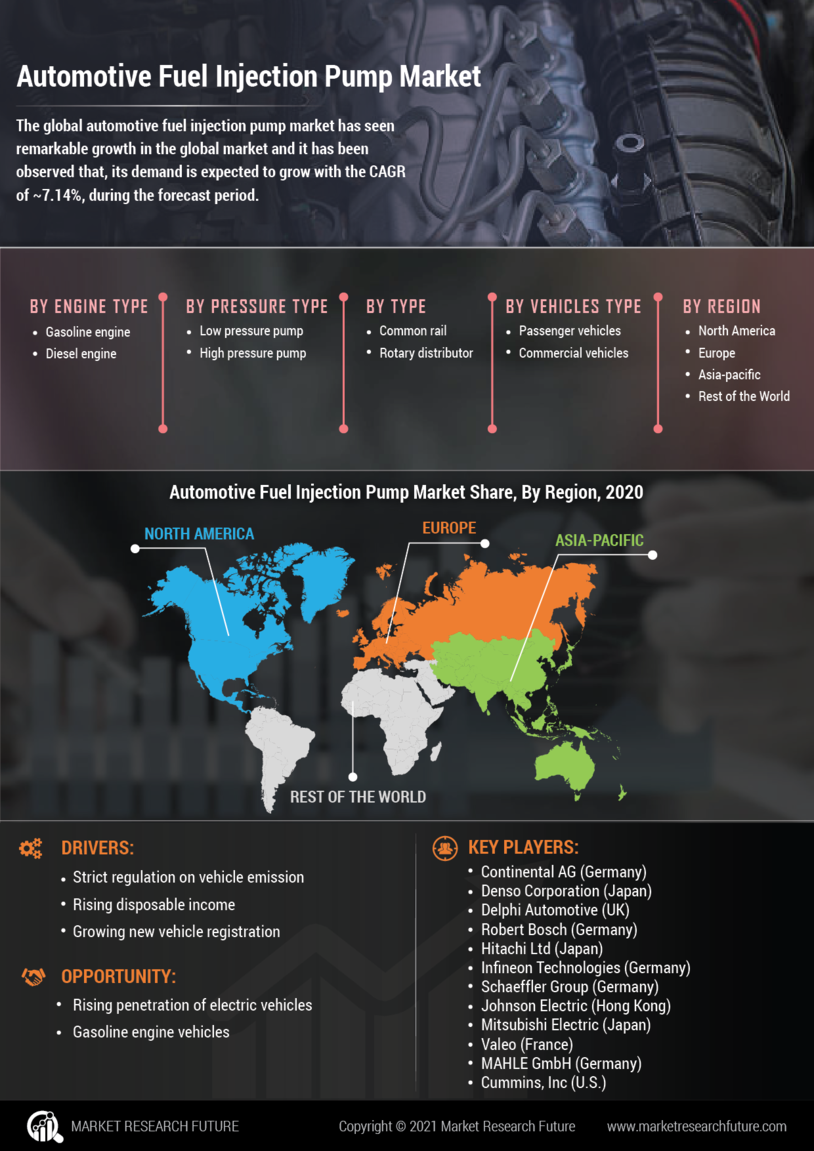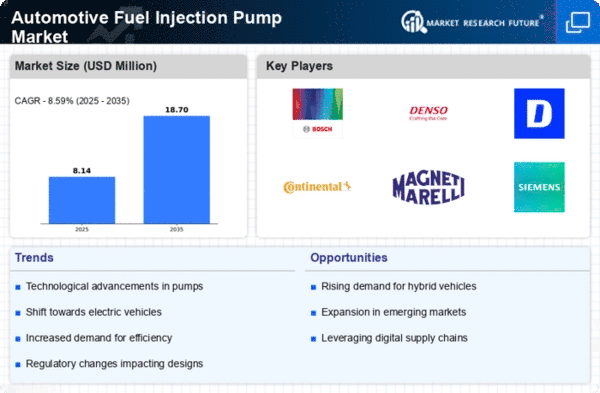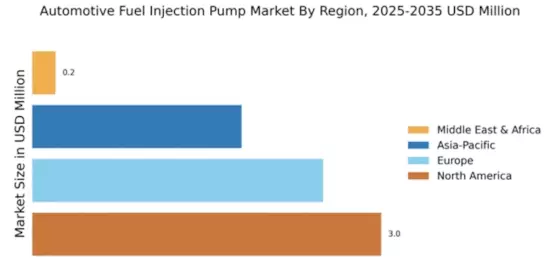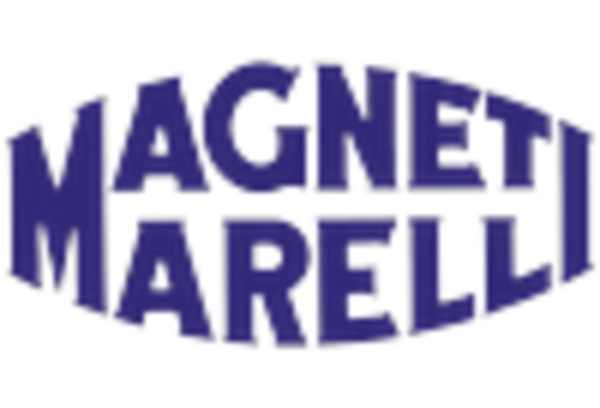Rising Demand for Fuel Efficiency
The Global Automotive Fuel Injection Pump Market Industry experiences a notable increase in demand for fuel-efficient vehicles. As consumers become more environmentally conscious, manufacturers are compelled to innovate and enhance fuel injection systems. This shift is evidenced by the projected market value of 25 USD Billion in 2024, driven by the need for reduced emissions and improved mileage. Countries are implementing stringent regulations on fuel consumption, further propelling the adoption of advanced fuel injection technologies. Consequently, the industry is witnessing a transformation as automakers invest in research and development to meet these evolving consumer preferences.
Growth of Electric and Hybrid Vehicles
The rise of electric and hybrid vehicles is influencing the Global Automotive Fuel Injection Pump Market Industry. Although these vehicles primarily rely on electric power, the integration of fuel injection systems in hybrid models remains essential for optimizing performance. This trend is indicative of a broader shift towards sustainable transportation solutions. As the market adapts to these changes, the demand for efficient fuel injection pumps is expected to persist, particularly in hybrid vehicles. The industry must navigate this transition while ensuring that fuel injection technologies remain relevant in a landscape increasingly dominated by electrification.
Increasing Vehicle Production and Sales
The Global Automotive Fuel Injection Pump Market Industry is positively impacted by the increasing production and sales of vehicles globally. As economies recover and consumer confidence rises, the automotive sector is witnessing a resurgence. This growth is reflected in the projected market value of 25 USD Billion in 2024, with expectations of reaching 45 USD Billion by 2035. The surge in vehicle production necessitates the incorporation of advanced fuel injection systems to meet performance and efficiency demands. Consequently, manufacturers are investing in fuel injection technologies to cater to the growing market, ensuring that they remain competitive in an evolving landscape.
Regulatory Compliance and Emission Standards
Regulatory compliance is a significant driver in the Global Automotive Fuel Injection Pump Market Industry. Governments worldwide are implementing stringent emission standards to combat air pollution and climate change. These regulations compel automotive manufacturers to adopt advanced fuel injection technologies that minimize emissions and enhance fuel efficiency. As a result, the market is projected to grow at a CAGR of 5.49% from 2025 to 2035, reflecting the industry's response to regulatory pressures. The need for compliance not only drives innovation but also shapes consumer preferences, as buyers increasingly favor vehicles that meet or exceed these standards.
Technological Advancements in Fuel Injection Systems
Technological advancements play a pivotal role in shaping the Global Automotive Fuel Injection Pump Market Industry. Innovations such as direct fuel injection and electronic control systems are enhancing the performance and efficiency of vehicles. These advancements not only improve fuel economy but also reduce harmful emissions, aligning with global sustainability goals. The market is expected to grow significantly, with a projected value of 45 USD Billion by 2035. As automotive manufacturers increasingly adopt these technologies, the industry is likely to witness a surge in demand for sophisticated fuel injection pumps that cater to modern engine requirements.


















